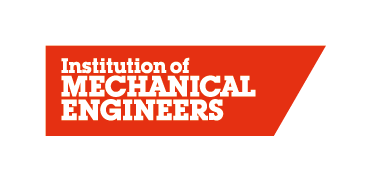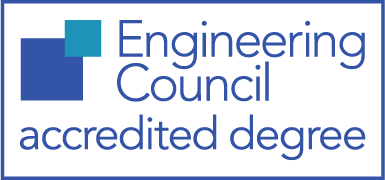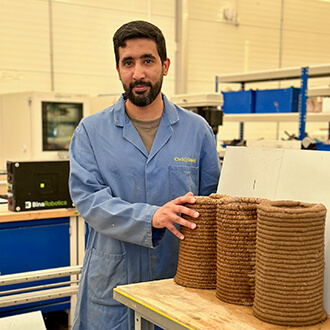Overview
Brunel's Automotive and Motorsport Engineering MSc gives graduates with a passion for motorsports and high-performance vehicles the advanced, specialist skills and knowledge they need to successfully pursue careers in this dynamic and competitive field of engineering. The course offers three study modes: one year full time, two years full time including a placement year, or 16 months full time including a 4 month internship (Sept-Dec).
You’ll study all aspects of the design, development and construction of competition vehicles such as state-of-the-art powertrain technologies including EV, hybrid and advanced ICs. You'll also learn about vehicle systems and how to use tools like computational modelling, simulation and data analysis to assess performance, strength, costs and safety. You’ll also develop managerial skills integral to race team operations such as race planning, vehicle testing, marketing concepts, leadership, risk management and employment. Your education will profit from the research done at our Centre for Advanced Powertrain and Fuels (CAPF), one of the largest and most active engine research groups in the UK.
There's a group project to design a single seater racing vehicle that you’ll present at the annual Formula Student event at Silverstone, the world’s largest student engineering design competition. This project mimics an actual professional racing team; you work to a schedule and budget and are expected to promote your team image through marketing and sponsorship.
At the end their final year, engineering and maths students are invited to showcase their project work at Brunel Engineers +, an event that both celebrates their achievements and gives them the chance to network with industry figures and employers. This video shows some of the projects exhibited at the 2024 Brunel Engineers + event, with explanations by the students themselves.
Throughout your studies you’ll have use of our state-of-the-art laboratory facilities, which comprise our motorsport workshop, and 24-hour access to industry standard specialist software for engineering design at dedicated computer clusters on campus, so you’ll have the opportunity and equipment to explore ideas and tackle problems.
The only thing faster than a speeding racing car, it seems, is the speed of change in motorsport technology and practice. Your Brunel postgraduate engineering degree will give you the technical and managerial skills to meet the challenges presented by the industry’s constant drive for improvement and set you apart in the eyes of prospective employers.
The programme is accredited by the Institution of Mechanical Engineers (IMechE), which means your degree will put you on course to gain Chartered Engineer (CEng) status in the UK.


You can explore our campus and facilities for yourself by taking our virtual tour.
Course content
The course is design to give graduates the technical expertise they need to specialise in automotive and motorsport engineering.
Coursework for your automotive and motorsport engineering degree consists of compulsory and optional modules and a 15,000-word dissertation.
Compulsory
- Advanced Vehicle Dynamics and Advanced CAD
Main aims:
- To enable students to model and analyse complex dynamics of automotive vehicles.
- To introduce students to the applications and challenges of vehicle testing and its impact on reliability.
- To familiarise students with the process of critically analysing vehicle performance.
- To familiarise students with test equipment and instrumentation, data logging, results processing and interpretation.
- To enable students with more advanced features of CAD.
- Advanced Materials and Manufacturing
Main aims:
- To provide a comprehensive understanding of properties of various types of materials choices for lightweight and high-performance structural design.
- To enable students to understand microstructure-property relationships in materials.
- To enable students to understand the manufacturing processes used for producing advanced mechanical engineering components.
- To introduce advanced manufacturing technologies for producing hybrid materials structures.
- To provide an understanding of full life cycle consideration in selection of materials for different applications.
- Hands on experience in additive manufacturing and practical analysis of microstructure versus properties of materials.
- Advanced Vehicle Propulsion Technologies and Systems
Main aims:
- To provide an overview of the state-of-art automotive vehicle powertrain technologies and systems, the legislated CO2 and pollutant emission regulations.
- To provide a deep understanding of the gas exchange process, boosting, direct injection and energy recovery technologies for internal combustion engines.
- To provide a good understanding of the operating characteristics of exhaust aftertreatment systems for internal combustion engine powered vehicles.
- To provide a good understanding of electrical motors and batteries, synergy between the engine and electrical powertrain.
- To introduce mathematical models and optimization methods that allow a systematic minimization of the energy consumption of vehicle systems.
- Strategy and Business Planning
Main aims:
- Concepts of business development (innovation, business and enterprise) and the links that exist at these levels.
- To critically evaluate the strategic positioning of a new product development (NPD) proposal.
- To critically analyse and assess an organisations resources and capabilities, in relation to an organisation’s business development.
- To develop an effective business development plan for an engineering company.
- DissertationThe dissertation aims for students to complete and report on a soundly executed and constructed programme of investigation, analysis and research containing original work.
- Major Group Project
Optional
- ME5693 - Advanced Thermofluids
- To introduce advanced simulation and modelling techniques for thermofluids.
- To introduce advanced experimental techniques for thermofluids.
- To develop the skills required to numerically solve engineering flow problems using advanced modelling techniques, analysing the results and then reporting the process and results.
- Racing Legislation, Finance and SponsorshipThis module aims to establish an understanding of the legal framework in which engineering businesses must operate, to provide an appreciation of management accounting techniques relevant to engineering, and to develop an awareness of how certain facets of business impinge upon motorsport engineering.
- Racing Vehicle Design and PerformanceThis module aims to introduce and familiarise students with racing vehicle designs and performance parameters, to enable students to critically analyse main vehicle systems, to develop students ability to design racing vehicle components and assemblies, and to enable students to characterise and optimise racing vehicle performance.
- ME5542 - Advanced Modelling and Design
- To provide students with the ability to employ advanced numerical models for the analysis of complex problems in engineering.
- To reinforce the awareness of advances in - and constraints on - engineering design.
This course can be studied undefined undefined, starting in undefined.
This course has a placement option. Find out more about work placements available.
Please note that all modules are subject to change.
Read more about the structure of postgraduate degrees at Brunel
Careers and your future
There is high demand for graduate engineers ready to tackle the challenges of the future. These include finding ways to design and build vehicles more cost effectively, addressing wider environmental and safety concerns, and working in motor racing.
Our graduates go on to careers with leading automotive companies (e.g. Jaguar Land Rover, Delphi, Ford). They also work with motor racing teams such as Mercedes, Red Bull, Williams and Lotus.
UK entry requirements
- A 2:2 (or above) UK Honours degree or equivalent internationally recognised qualification in an engineering (Automotive, Mechanical, Aeronautical, Aerospace) or technology subject.
- Other degrees in a related subject, including but not limited to civil, electrical, building services, physics and mathematics will be considered and assessed on an individual basis.
EU and International entry requirements
If you require a Tier 4 visa to study in the UK, you must prove knowledge of the English language so that we can issue you a Certificate of Acceptance for Study (CAS). To do this, you will need an IELTS for UKVI or Trinity SELT test pass gained from a test centre approved by UK Visas and Immigration (UKVI) and on the Secure English Language Testing (SELT) list. This must have been taken and passed within two years from the date the CAS is made.
English language requirements
- IELTS: 6 (min 5.5 in all areas)
- Pearson: 59 (59 in all sub scores)
- BrunELT: 58% (min 55% in all areas)
- TOEFL: 77 (min R18, L17, S20, W17)
You can find out more about the qualifications we accept on our English Language Requirements page.
Should you wish to take a pre-sessional English course to improve your English prior to starting your degree course, you must sit the test at an approved SELT provider for the same reason. We offer our own BrunELT English test and have pre-sessional English language courses for students who do not meet requirements or who wish to improve their English. You can find out more information on English courses and test options through our Brunel Language Centre.
Please check our Admissions pages for more information on other factors we use to assess applicants. This information is for guidance only and each application is assessed on a case-by-case basis. Entry requirements are subject to review, and may change.
Fees and funding
2026/27 entry
UK
£14,435 full-time
£1,385 placement year
International
£24,795 full-time
£1,385 placement year
More information on any additional course-related costs.
Fees quoted are per year and are subject to an annual increase.
See our fees and funding page for full details of postgraduate scholarships available to Brunel applicants.
Scholarships and bursaries
Teaching and learning
To ensure you receive the maximum support and have the greatest opportunity to reach your full potential the expectation is that you attend in-person all teaching activities including examinations that are scheduled on campus. This will be the majority of all activities. However, where for pedagogical reasons alternative methods of delivery are used for activities you'll be notified and expected to engage with the activity at the time of delivery.
Laboratory Support
For modules with practical learning content, these will be delivered in-person on campus in the laboratories.
Assessment
Traditional examinations will be taken in-person on campus.
Access to specialist software
You'll have access to relevant engineering software on campus. You're also able to install software on your own personal laptop and connect to the Brunel License server through a VPN connection. This provides continued access to all services.
Access to a laptop or desktop PC is required for joining online activities, completing coursework and digital exams, and a minimum specification can be found here.
We have computers available across campus for your use and laptop loan schemes to support you through your studies. You can find out more here.
Our staff have national and international reputations for their research, publications and applied work. Many carry out much of their research in collaboration with major oil companies, motor vehicle manufacturers, leading industrial firms and governmental laboratories. This means that your education will be at the forefront of scholarship and practice, covering the most up-to-date industry knowledge.
Your course will consist of combinations of lectures, seminars, tutorials, laboratory and practical sessions, coursework and group work.
Should you need any non-academic support during your time at Brunel, the Student Support and Welfare Team are here to help.
Assessment and feedback
Modules are taught over eight months (from October to May) and are assessed by a balanced combination of examination and assignment. For the final four months (June to September), students will conduct an individual project and prepare a dissertation, allowing the opportunity to undertake original research relating to the automotive and motorsport engineering fields.
The group project is conducted throughout the year and is assessed by means of project logbooks, oral presentations and final project reports.
Read our guide on how to avoid plagiarism in your assessments at Brunel.



